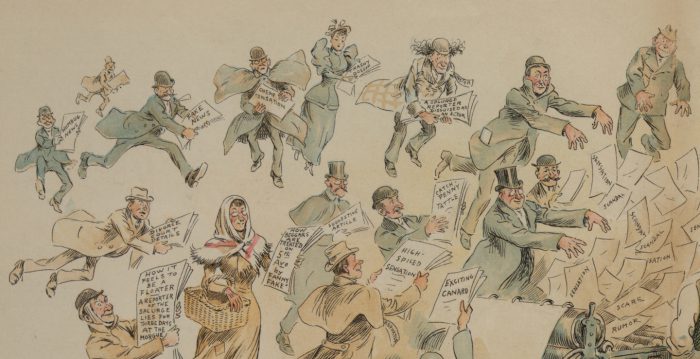
If most fact-checking as it’s presented to readers today bores you, now’s your chance to figure out more exciting formats — and maybe win a big cash prize doing it.
The International Center for Journalists is running a contest called TruthBuzz that seeks ideas to make fact-checking and debunking stories more appealing to readers, and to increase their chances of going viral.
From the contest description:
We want your creative solutions for taking fact-checking beyond long-form explanations and bullet points. We’re looking for ideas — from everyone, not just journalists — that turn fact-checking into engaging, visual and interactive stories that are instantly understandable and shareable.
A successful entry to TruthBuzz will refute or clarify a false or misleading report or statement in an engaging, entertaining way that convinces audiences of its veracity and encourages them to share it.
Any digital format in any language is welcome, from individuals or teams (though the application form itself must be filled out in English). What’s more, the grand prize winner will get $10,000 in cash ($5,000 and $2,500 for the second and third-place awardees), sponsored by the Craig Newmark Foundation.
Curious what the TruthBuzz judges are looking for, exactly? ICFJ recorded a webinar with a few of those judges, detailing their thinking. Some important criteria:
— “We want to be surprised. We want rich information, but conveyed in a way that surprises us,” Aimee Rinehart of First Draft News said. “How are you telling the story? Is how you’re telling it authoritative? Are you professionally developing it? Can we see the mic in the frame? Can we see sloppy code? Those are things I think that would prevent someone from winning the contest.”
— “Content is going to be at least 60, 70 percent for me, when it comes to the entries. And then we’ll come to the presentation of things,” Shaheryar Popalzai, an ICFJ Knight fellow, said. There are also existing tools that can help you improve the presentation of a fact checking item, if you don’t have the resources yourself.
More FAQ at the end of the video:
The contest ends July 9. You can enter it here.
Leave a comment